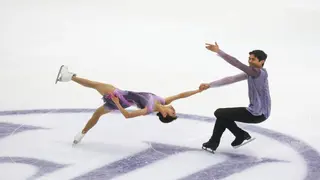Which is the best sport in the world right now and why is it the best ?
Other Sports
Artistic roller skating is an expressive sport combining dance, skating, and precision. The activity has attracted numerous skating enthusiasts globally, becoming integrated into the Olympics and World Artistic Skating Championships. This article delves into the details of the sport and everything you should know about it.

Is artistic roller skating a sport? It is a competitive sport that combines several disciplines to make it more entertaining and diverse. The activity evolved from ice skates and gained popularity in the 1930s and 40s. Today, it comprises numerous styles and routines. So, what is artistic roller skating? Keep scrolling to find out.
Artistic roller skating is a free form of skating that involves expression, creativity, grace, and agility, using roller skates as opposed to traditional ice skates. The sport combines the basic figure skating techniques and the free-flowing body movements that form an incredible choreography during any performance.
Which is the best sport in the world right now and why is it the best ?
Other Sports
Skaters in this category enjoy the freedom to create diverse spins, twirls, and formations as they perform. Today, the athletes also compete in various contests, including the Olympics. They perform as single contestants, pairs, or groups.
The artistic sport dates back to the 1930s and 40s in the United States of America among the black community. Initially, the activity borrowed heavily from figure skating but has evolved significantly over time. In 1949, freestyle and figure skating split into two different sports. Today, artistic roller skating has broken into three different variations.

Artistic roller skating involves dancing and a wide range of techniques. Here are the different disciplines that it is divided into based on the technique and mode of expression:
Also known as freestyle skating, this method involves individual performances performing to a choreographed music routine. They dance, jump, and spin in a coordinated and artistic expression. The discipline is further divided into pair skating (for couples) and synchronized skating, which involves elements like wheels. Free skating gives skaters a form foundation to progress to the other levels.
Ranking the 15 best skateboarders in the world right now
NBA
In figure skating, the skaters move with precision along defined circles marked on the floor, commonly known as figures. The competitors glide across over 60 compulsory figures and must move with balance and control. The figures are referred to by numbers, including circle eights, paragraphs, and loops.
111 and 112 are unique to roller skaters, requiring special navigation techniques. In a competition, skaters are judged by the quality of their take-offs, edges, tracing, and turning in the proper form and posture.

Precision skating involves a team of 8-24 athletes gliding one at a time in a choreographed routine. The method is performed to music and focuses on teamwork and the crew's ability to move in precise formations and timing. Team members must have excellent skating skills, including speed and footwork, to move along the circles, turns, and intersections.
Figure skating history: A deep dive into the origin of figure skating
Other Sports
The first World Championship in Precision Roller Skating took place in 2000. It is the fastest-growing artistic skating discipline. Precision skating is yet to be enjoined in the Olympics but has become popular in several countries and colleges worldwide.
This discipline combines ballet and ballroom dancing. Individuals or couples perform alongside music and have compulsory moves, waltzes, and marches. These participants must master timing, poise, and expression, which also go a long way to complete the performance. Dance skating is further broken down into four sub-categories: compulsory dance, original dance, and free dance.
This unique sport is regulated by World Skate and governed by a set of rules that also depend on the discipline in which you participate. Here are some of the standard rules:
How many sports are there in the world? A list of all sports and games
Other Sports

If you want to take up the indoor sport, you can access artistic roller skating lessons in skating schools near you. The sport requires consistent practice to help you advance your skills. Additionally, ensure you have the necessary equipment to facilitate your play.
Artistic roller skating is a thrilling sport that attracts massive audiences and participants. Including several elements makes it exciting and unique as it has spread to several parts of the world. As it continues becoming an established sport in the Olympics, fans can enjoy watching their teams battle it in the existing contests.
READ ALSO: Why do skaters wear baggy clothes? Find out the real reason
Sports Brief published an article explaining why skaters wear baggy clothes as they glide away. The sport has attracted a specific calibre of people and is associated with Hip-Hop culture, music, and general lifestyle. So, why do skaters wear baggy clothes?
Skaters prefer to wear loose-fitting clothes because they leave room for them to move freely. Secondly, these outfits offer protection against direct harm to their skin or bodies in case of a fall. Check out the article above and discover why skaters prefer baggy clothes.